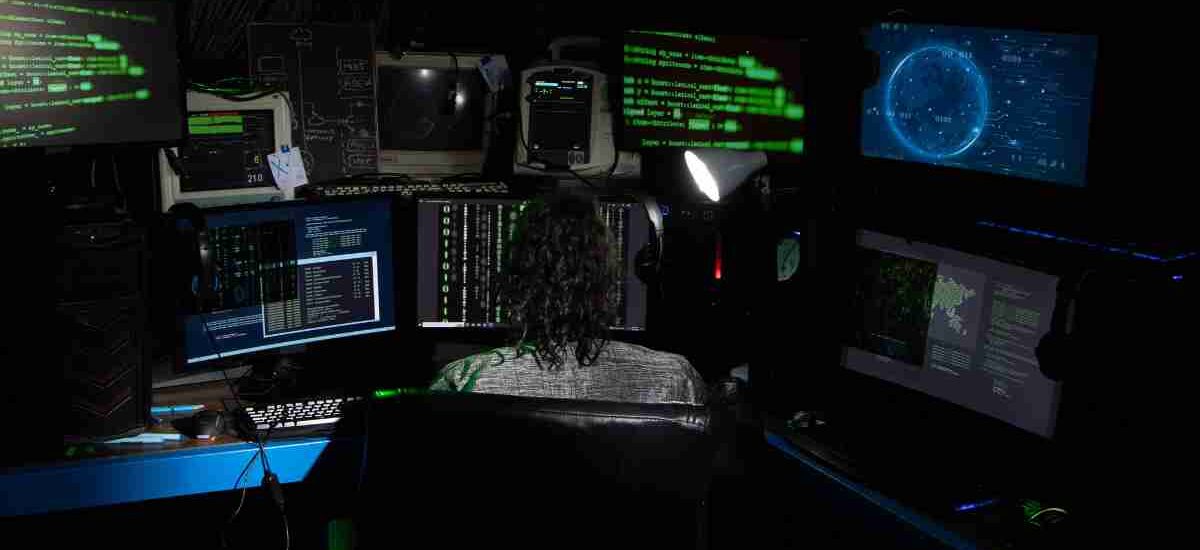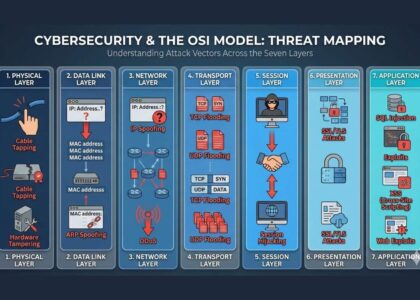So, you’re thinking about jumping into cybersecurity? Maybe you heard there’s good money. Or perhaps you’re just tired of boring jobs and want something that sounds cool at parties. Either way—welcome. But fair warning: cybersecurity is like Hotel California… you can check in anytime you like, but you can never leave.
Let’s talk about why that is.
The Myth of the “Difficult Entry”
First things first—let’s bust a myth.
People often assume that cybersecurity is only for hoodie-wearing geniuses who can hack into NASA using only their toaster. Not true. The barrier to entry is way lower than people think.
You don’t need a computer science degree from MIT. You don’t even need to know how to code (at first). What you do need is curiosity, a strong sense of “What happens if I press this button?” and the willingness to learn and fail—often.
There are free courses, free labs, and free communities willing to guide you. Platforms like TryHackMe, Hack The Box, and even YouTube have democratized the hell out of this industry.
TL;DR: If you’ve got Wi-Fi, patience, and a laptop, you can start today.
Okay, So You’re In—Now What?
Once you enter, you start to see the layers.
At first, it’s just “Wow, phishing emails are dangerous.” Then it becomes, “Wait, this entire network is vulnerable to man-in-the-middle attacks,” and soon you’re deep-diving into packet sniffing like it’s your favorite Netflix series.
The rabbit hole is endless. Each day introduces you to something new: zero-day exploits, threat intelligence, ransomware variants, malware reverse engineering, nation-state actors. You will never, ever get bored.
There’s a joke in the industry:
“Cybersecurity is the only field where the moment you feel caught up, you’re already behind.”
Welcome to the madness.
A Playground for All Personality Types
Whether you’re a puzzle-loving introvert or a communication-savvy extrovert, cybersecurity has a role for you.
- Love research? Become a threat intel analyst.
- Great with logs and alerts? SOC analyst life is calling.
- Curious about breaking things? Try penetration testing.
- Prefer helping people? Be a cybersecurity awareness trainer.
- Enjoy building tools? Write scripts, automate scans, or design secure systems.
This industry doesn’t care about your background—it wants your brain. We have ex-chefs, ex-cops, ex-accountants, even ex-janitors running blue teams.
And guess what? Some of the best hackers started as gamers.
Let’s Talk Money (Because, Duh)
Cybersecurity pays—and it pays well.
Even entry-level jobs like SOC L1 Analysts earn decent salaries, especially in regions with strong tech ecosystems. Once you hit mid-level (3–5 years of experience), you could be making six figures in dollars or multiple lakhs in India.
Freelancers, consultants, bug bounty hunters, and researchers can earn even more.
But here’s the real kicker: even during economic downturns, cybersecurity jobs stay. Why? Because threats don’t take a break. In fact, attacks increase during economic turbulence.
So yeah—job security is chef’s kiss in this field.
The High You Can’t Shake Off
Let me be real here.
There’s an adrenaline rush in cybersecurity that’s hard to describe. That feeling when you catch a phishing email before it hits users? Pure dopamine. When you find an open S3 bucket leaking sensitive data during a pentest? Fireworks. When you bypass an advanced firewall during a red team exercise? Heaven.
Even mundane tasks feel like missions. You’re not just clicking buttons—you’re protecting people, systems, even nations.
You go from being a nobody in IT to a digital detective, a security architect, a hero in the shadows.
Cybersecurity gives you that purpose—the kind that makes you say, “Yeah, this is what I was meant to do.”
But It’s Not All Roses and Rainbows
Let’s not romanticize it too much.
Cybersecurity also comes with burnout. Alerts don’t stop. Breaches can happen on weekends. You may get paged at 3 AM to handle an incident. Stress is part of the package, especially in high-responsibility roles.
Also, imposter syndrome is rampant. You might feel like you know nothing—even after 3 years. But guess what? Everyone feels that way.
We’re all Googling. We’re all learning on the job. And it’s okay.
The secret isn’t to know everything. It’s to know how to find answers quickly and stay calm under pressure.
Certifications: Your Gateway Drug
Here’s how it usually begins:
- You start learning.
- You get hooked.
- You think, “Let me get a cert.”
- And boom—next thing you know, you’ve got CompTIA Security+, CEH, OSCP, CISSP, and your weekends are spent studying instead of partying.
Welcome to the club.
Certifications aren’t mandatory, but they help a LOT. They open doors, especially in corporate environments that use HR filters. They also provide structure in a chaotic field.
Just don’t overdo it. Real-world skills > a wall full of certs.
The Community That Never Lets You Leave
Ah, the cyber fam. It’s unlike any other.
The memes? Top tier.
The Twitter threads? Full of gold.
The people? Weird, wonderful, generous nerds.
You’ll find strangers willing to mentor you, share lab setups, review your resume, or even recommend you for jobs—all without asking anything in return.
Once you’re in, you’re part of the tribe. And that feeling of belonging? It’s addictive.
You’ll find yourself attending DEF CON, BSides, Nullcon, or at least livestreaming talks at 2 AM. You’ll connect with folks worldwide. You’ll stay because these are your people.
Your Curiosity Will Never Be Satisfied
Every year, new tech = new attack surface.
- AI? Attack it.
- IoT? Insecure by default.
- Blockchain? Vulnerable smart contracts.
- Web3? LOL, good luck with those DeFi scams.
- Cloud? Endless misconfigurations waiting to be exposed.
No matter how long you’ve been in the game, there’s always something to learn. That’s why it’s so hard to leave.
Even if you try, your brain stays wired to think like a security person. You’ll judge login pages. You’ll look at public Wi-Fi like it’s lava. You’ll read URLs before clicking.
Cybersecurity rewires your brain. And that’s a fact.
Freelancing & Side Hustles: The Exit That Isn’t
Think you’ll leave corporate and exit cybersecurity? Think again.
Many pros move to freelancing, content creation, bug bounties, consulting, or teaching. But guess what? It’s all still cyber.
You may leave the 9–5, but you won’t leave the field. You’ll just shift gears.
Some even write books, start newsletters, launch courses, or host podcasts—and still, their core is cybersecurity.
There’s Always a Higher Level
Even if you reach the top, there’s another summit.
You might start in a SOC, then move to threat hunting, then to Red Teaming, then to CISO—or shift into cloud security, digital forensics, reverse engineering, or cyber law.
The career paths aren’t linear; they’re interconnected. Like a spider web—pull one thread, and five more appear.
Cybersecurity evolves faster than any other tech field. So your curiosity never stagnates, and neither does your growth.
So Why Is It Impossible to Leave?
Because it doesn’t feel like a job.
It feels like a mission.
You’re not selling products. You’re protecting people. You’re preventing real-world harm—whether it’s someone’s bank account, identity, or privacy.
Once you internalize that sense of purpose, it’s incredibly hard to walk away. Even on your worst days, you’ll remember why you’re here.
And honestly? That’s what makes it beautiful.
Closing Thoughts: You In or What?
Cybersecurity is the only field where people join “just to try it out” and end up staying for a decade.
It’s a field that teaches you how the world really works—from the underground black markets to the deep web, from zero-trust architecture to ransomware-as-a-service.
It’s weird. It’s wild. It’s hard. It’s thrilling.
And once you get in, it becomes part of your DNA.
So if you’re thinking about entering, go ahead. But don’t say I didn’t warn you.
Because cybersecurity is not just a career.
It’s a lifestyle.






